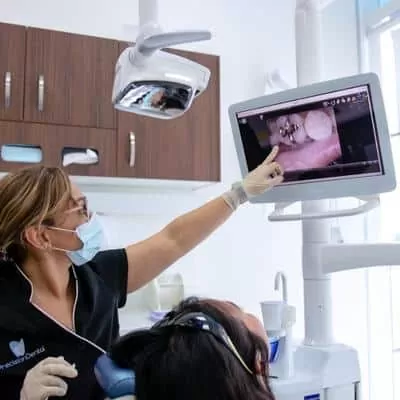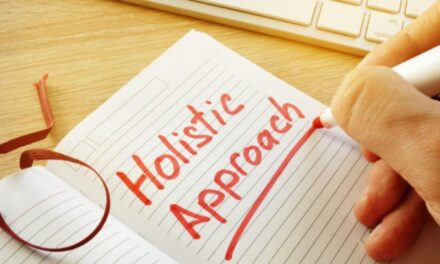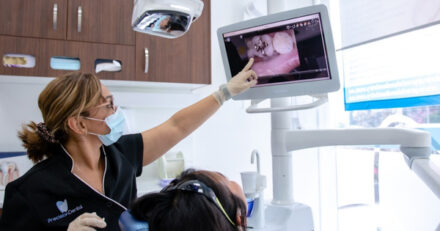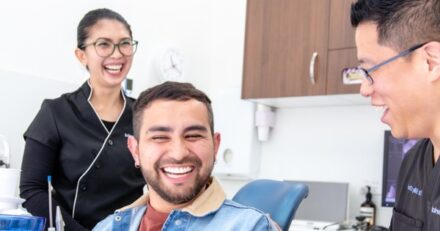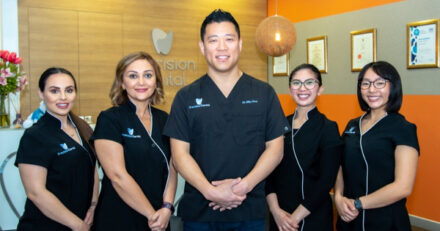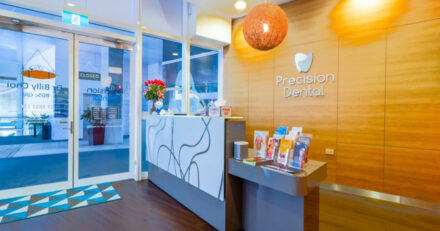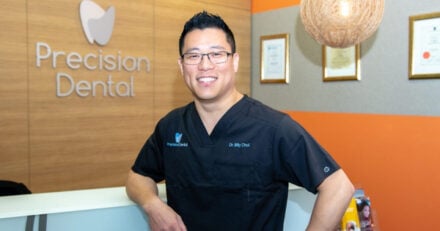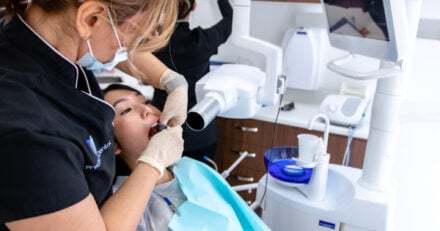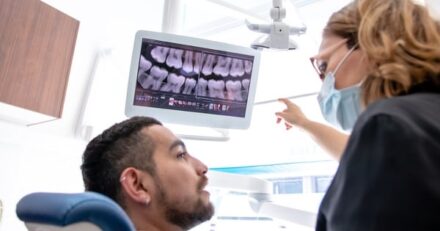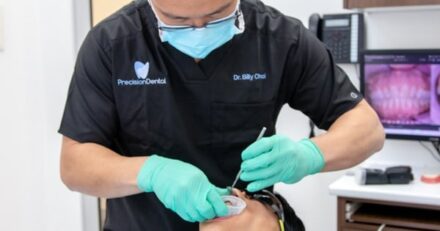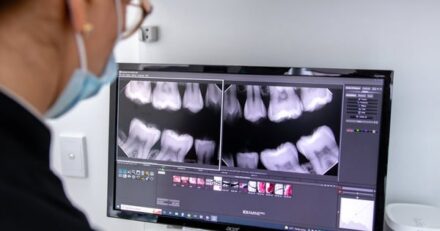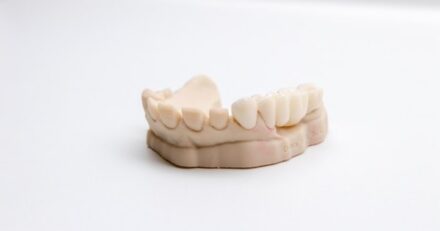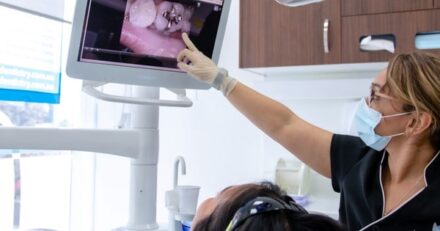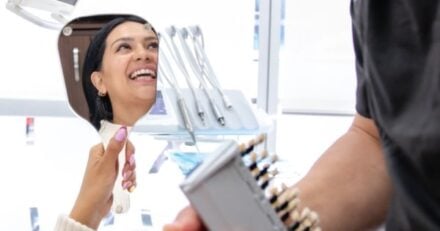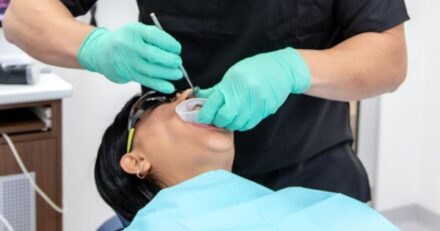Holistic Dentistry: What Is It? Does It Even Exist?

According to an article from the one of the world’s top 25 universities, holistic dentistry promotes some therapies that are not considered typical. It is a self-designated term, adopted by dental practitioners whose practices and philosophies can greatly vary.
Ostensibly, it appears to have a similar reputation to homeopathy: considered to be a pseudoscience rather than an evidence-based therapy.
Which is all well and good if you don’t believe in it. It makes it pretty cut and dried.
What makes it become really curly is when you consider the paradox of the placebo affect. Quantitative and qualitative empirical data tells us the neuroscience involved in the beneficial therapeutic results of this complex phenomenon.
Holistic dentists assert a whole body approach that comprises the overall physical and psychological state of the patient, rather than solely focusing on teeth and gums.
Traditional dentists will tell you that they do the exactly the same.
Dental care is parallel, rather than in isolation to the rest of body according to the practice of natural dentistry; which is a view that Medicare should truly, truly consider.
To be an holistic dentist demands no additional formal training. There are organisations such as The Holistic Dental Association and The International Academy of Oral Medicine and Toxicology (IAOMT).
The IAOMT is a non-profit organisation with US federal tax exemptions, founded in 1984 as a global network of scientists, health professionals and dentists dedicated to researching the biocompatibility of dental products.
It investigates and promotes scientifically valid, non-invasive therapies, and evaluates risks with the likes of fluoride, and the common practices of using mercury fillings, and performing root canals.
It views its work as crucial because of what it sees as an alarming lack of policy, professional and public awareness about dental products that harm humans and the environment.
The IAOMT claims to be leaders in science-based biological (or holistic) dentistry. It defines biological dentistry as, “… a thought process and an attitude that can apply to all facets of dental practice and to health care in general: to always seek the safest, least toxic way to accomplish the goals of modern dentistry and of contemporary healthcare.”
It has members, and holds two conferences a year that generally attract around 400 attendees from the various disciplines of medical research, dentistry and other health professionals. It even offers a Student Scholarship programme in order for those still in training to be conference delegates.
It’s serious stuff. Yet it’s not taken seriously by traditional dentists.
Holistic, or biological dentists are not recognised as specialty providers in the same way a periodontist is, for instance.
Traditional dentists often use mercury in amalgam, the compound of heavy metals used to fill cavities. It is considered safe to use.

However biological dentistry practitioners cite the many health concerns that mercury poses when it enters into the bloodstream. The EU banned mercury amalgams in its 27 member countries, with New Zealand working to abide by that same exclusion.
The Minamata Convention on Mercury is a global treaty to protect human health and the environment from the adverse effects of mercury, started in 2013. With the Secretary-General of the UN as the depository, and finally ratified by Australia in December 2021, it has 128 participant countries.
Holistic, natural or alternative dentists will always use non-toxic and biocompatible substances for fillings, along with porcelain and composite materials where metals and plastics would otherwise be utilised.
Why there is such criticism of holistic dentistry by its traditional contemporaries is not much different to doctors determining that alternative medicines and therapies are inferior.
They’re much more familiar with pharmaceuticals and surgeries, so it makes sense to therefore be more comfortable with them. That they too are not without risk, is routinely minimised.
Adverse prescription drug effects and other medical errors are the third leading cause of death in the US. By most estimates, less than 10% of these events are even reported.
A license to practice dentistry enables the prevention, diagnosis and treatment of oral issues and disease.
It is a profession with established, evidence-based protocols that conforming to set guidelines by relevant governing bodies. Proponents of holistic dentistry subscribe to some treatments not legitimised by traditional dentistry because they’re not part of the degree curriculum.
Holistic dentists have still achieved the right to practice; there are no holes in the seven years of study it took to earn their certification.
Their focus is no different to that of a traditional dentist – which is to nurture and maintain optimal oral health. They still use modern technology and state-of-the-art equipment.
If the idea of not using mercury amalgam for any fillings you may need sits comfortably with you, then explore natural dentistry.
If the thought of being more responsible for reducing chemical damage to the environment, and supporting sustainable resources sustains you, then do some research on biological dentistry.
If choosing an holistic Brisbane dentist gets you more happily into that dental chair every six months, then revel in having that option.
It’s your mouth. Look after it the way that works best for you. Whether it’s the contemporary or alternative path, it has to be the one that’s taking you where you know you want to be.
The content has been made available for informational and educational purposes only. Precision Dental does not make any representation or warranties with respect to the accuracy, applicability, fitness, or completeness of the content.
The content is not intended to be a substitute for professional personal diagnosis or treatment. Always seek the advice of your dentist or another qualified health provider with any questions you may have regarding a dental or medical condition. Never disregard professional advice or delay seeking it because of something you have read or seen on the Site.
Services We Mentioned:
